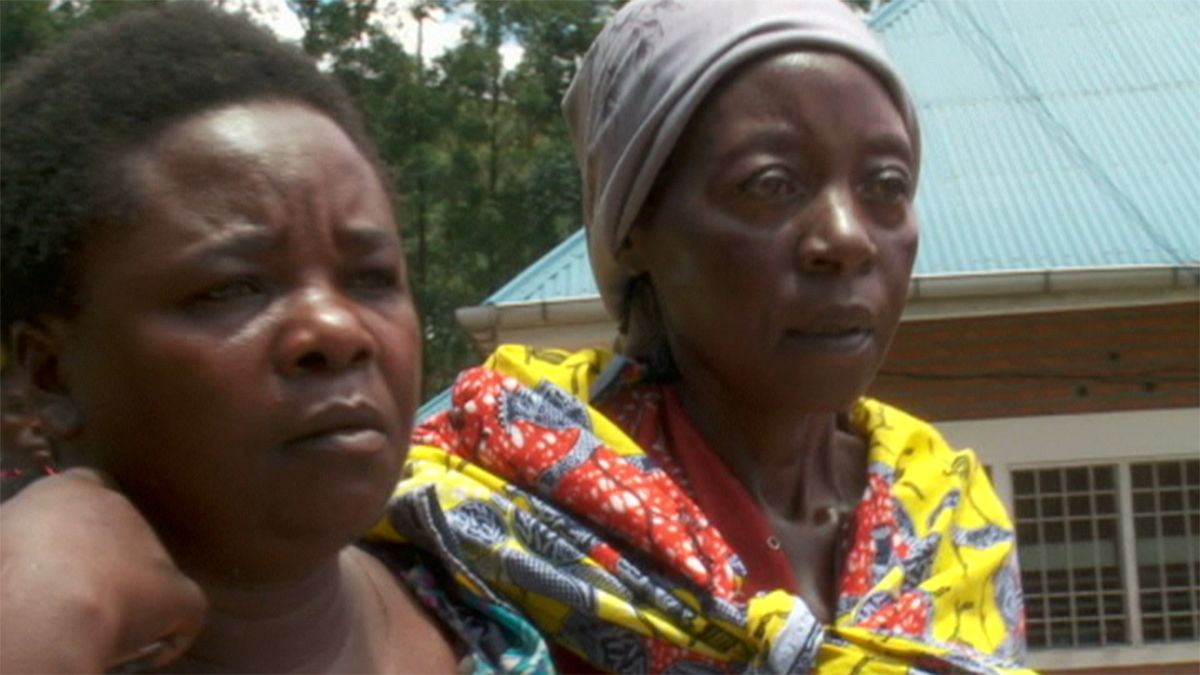Rape as a weapon of war is something that women in the Kivu region of the Democratic Republic of Congo know only too well.
This week, we meet an extraordinary woman – Masika who survived rape, and now dedicates her life to helping others overcome similar atrocities.
In the Democratic Republic of Congo many women have been raped and subsequently rejected by their families. They walk dozens of miles to take refuge with Masika and her association in Minova, South Kivu. It is an area where Congolese militias and armed groups from Rwanda, Burundi and Uganda still terrorise rural communities, years after what was called the First African World War officially ended in the Democratic Republic of Congo, which used to be called Zaire.
Everyone at the Minova hospital knows Masika. She pays the medical bills for the women who, like Josephine have been infected with AIDS, after being kidnapped, tortured, and raped for months on end by militias hiding in the bush.
Masika takes one survivor, Josephine, home with her. She escaped her tormenters, but has only a few days left to live.
As well as rescuing and sheltering women who been raped and subsequently rejected, Masika has also adopted 34 children, all either war orphans or the result of rape.
For the last 12 years, Masika has fought to give a future to people who have lost all hope. It is a commitment she made after surviving the unthinkable. In 1998, militiamen murdered her husband in front of her, and raped two of their daughters.
She described a terrible ordeal: “They made me sit down, completely naked, with two guns at my head. When I screamed, they slashed at my face and body with their knives. My whole body is covered in scars. One of them asked if I’d already chewed a bazooka. I said yes. I thought he was talking about bazooka chewing gum. So he took my dead husband’s penis, and cut it up in small pieces. They forced me to eat all the pieces of my husband’s penis. The room was full of my husband’s blood. They ordered me to gather his remains, and to lie upon them. I had to obey. And they started to rape me, on the remains of my husband’s body.”
Masika says that this was only part of the nightmare. She wants the world to hear what so many women endure in the Democratic Republic of Congo.
She hears similar stories every day. As well as giving victims moral and material support, the members of her association try to reintegrate them into their communities. They also try to educate and sensitise the armed groups. Whatever the cost.
But beneath her apparent resilience, Masika’s body is exhausted and damaged, despite three operations. She says her strength is limited; but mainly, she does not have enough funds to keep on fighting. And the impunity that reigns in the country does not help.
Masika explained: “The government doesn’t punish this type of criminal. As human rights activists, we do everything we can to bring them to justice, and have them put in prison. We see the verdicts, the laws, that condemn them to 25 or 15 years of jail. They’re convicted, but then they’re released two days later. You see them walking around freely, and threatening you, the activist.”
Militiamen have already come looking for Masika, but fortunately they did not recognise her. But they said they would return and kill her, because she publicly condemns their acts.
She is defiant saying: “I’m no longer afraid, I’m already in danger. I feel as if I died a long time ago. I don’t care about dying, I no longer fear anyone. I keep going to meet all these armed men, even if they tell me they will kill me. If I have to talk to them, to sensitise them, I will do it. I know I’ll be killed one day. They’ll kill me because I’m fighting for women, and for human rights. But I have to continue. They will kill me, I have nothing left to fear.”
For more information contact: apdud.buganga@gmail.com


